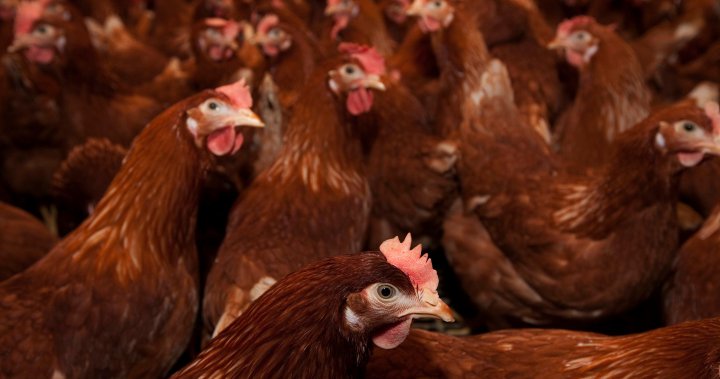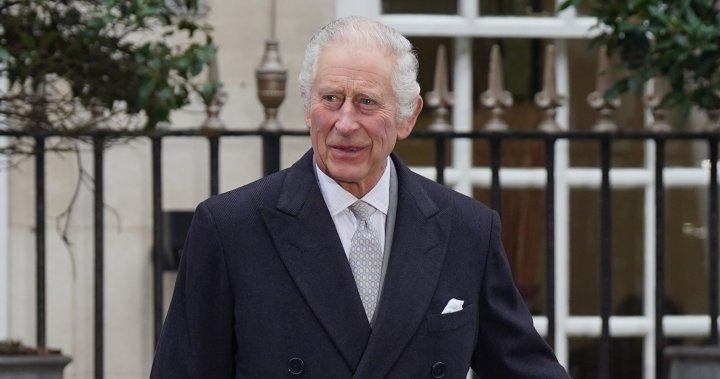Ahead of Easter, an “unprecedented” global outbreak of avian flu is ruffling feathers in Canadian poultry, with millions of birds affected across the country in the past five months.
The Canadian Food Inspection Agency (CFIA) told Global News it is responding to the presence of highly pathogenic avian influenza (HPAI), subtype H5N1, in small flocks and commercial and non-commercial farms with birds across Canada.
Since the beginning of the fall migration period in September 2023, an estimated 3,358,547 birds in flocks have been impacted by avian flu, Dr. Cathy Furness, deputy chief veterinary officer at the CFIA, said in an email Friday. This does not include wild birds.
“The current global avian influenza outbreak has been unprecedented,” she said, adding that other countries are also grappling with the spread.
Typically, the CFIA responds to avian flu outbreaks on a seasonal basis, during bird migratory periods in spring and fall.
“The ongoing response is unique in the number of detections, the geographical distribution of outbreaks and its long duration, which has extended beyond typical migratory periods,” Furness said.
Get the latest Health IQ news.
Sent to your email, every week.
Avian influenza can infect multiple species of domestic chickens, turkeys, quails and guinea fowl as well as wild and pet birds, according to the CFIA.
The turkey industry was one of the hardest hit by the avian flu in 2022, Agriculture and Agri-Food Canada says, and that disrupted holiday supply in the country that year.
Avian flu can impact both the poultry industry and wildlife.
In Kingston, Ont., avian flu killed roughly 30 Canada geese that were found along the Lake Ontario Park waterfront earlier this month.
The virus was also confirmed in dead Canada geese in Belleville, Ont., public health officials said on Monday.
The virus is spread through contact with an infected bird or poultry products. Although rare, humans and non-avian species can also get infected.
In Canada, there have also been some sporadic bird flu cases detected in raccoons, striped skunks, red foxes, cats and dogs.
However, avian flu does not pose a food safety concern, the CFIA says.
“There is no evidence to suggest that eating cooked poultry or eggs could transmit HPAI to humans,” the agency states on its website.
To keep the virus in check, the CFIA, in collaboration with the industry, has surveillance programs in place that target wild birds and domestic flocks.
Biosecurity measures involve maintaining good hygiene practices and limiting exposure to external sources of contamination, the agency says.
“The continued detections of HPAI in both wild and domestic birds in Canada is a strong reminder for anyone raising birds to remain vigilant of HPAI and ensure they have effective biosecurity measures in place,” Furness said.
Canada has also placed restrictions on imports of poultry, poultry products and live birds from other countries affected by a bird flu outbreak.
© 2024 Global News, a division of Corus Entertainment Inc.




